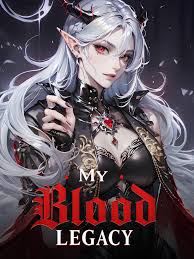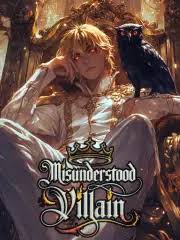The Story in 3 Sentences
A man dies in our world and wakes up as Richard Scarlette, a doomed mid-rank villain in a fantasy novel, vowing to ditch his arrogant fate and live a quiet, peaceful life far from the destined heroes and heroines.
His plans crumble instantly when a system notification reveals the heroines have retained their memories from the tragic original timeline, turning his peaceful retirement into a desperate game of survival against women who know exactly how he dies.
Forced to navigate a world where his enemies are one step ahead, Richard must leverage his knowledge, a sporadically useful system, and his own unexpected kindness to rewrite his story from a bloody footnote into a hard-won, chaotic victory.
Why It Stands Out
1. The Anti-Villain’s Slice of Life
It ditches the usual revenge porn for a protagonist who just wants to chill. Richard’s core drive isn’t domination or vengeance; it’s self-preservation through avoidance and kindness, creating a uniquely relatable and often humorous tension as he’s constantly dragged back into the drama he’s trying to escape. The focus on daily life, awkward romances, and character moments over constant battles makes it a refreshing take on the genre.
2. Yandere Moms and Memory-Holding Heroines
The story weaponizes its harem and family dynamics in wild, unpredictable ways. With heroines like Eleanor and Elizabeth plotting with foreknowledge, and a terrifyingly possessive mother figure in Bellarine who is also the realm’s strongest warrior, the emotional stakes are sky-high. It’s a chaotic blend of psychological tension, dark comedy, and genuine affection that keeps readers perpetually off-balance.
3. A System That’s More Burden Than Blessing
Unlike typical overpowered MCs, Richard’s system is inconsistent and often ignored, adding a layer of realism and frustration. He forgets his powers, hesitates to use them, and sometimes finds them utterly useless against the sheer force of personality from his antagonists. This flaw makes his victories feel earned through wit and circumstance rather than divine intervention, grounding the fantastical premise.
Characters That Leave a Mark
There’s Bellarine – Richard’s mother and the realm’s most powerful Duchess, a fan-favorite whose terrifying strength is matched only by her overwhelming, yandere-like possessiveness, making her both his greatest protector and his most suffocating burden.
You’ll meet Eleanor, who is one of the heroines armed with memories of the original timeline, using her foreknowledge to manipulate events and people with chilling precision, turning every interaction with Richard into a potential trap.
And Lilia? They’re the one who serves as Richard’s loyal maid, a grounding presence whose practicality and care offer a stark, human contrast to the cosmic drama and possessive insanity swirling around her master.
The Flaws Fans Debate
The power scaling is inconsistent and often confusing, making it hard to gauge real threats when characters with supposedly low power can challenge god-like entities.
The system, a core plot device, frequently disappears for dozens of chapters, rendering its abilities and rewards feel arbitrary and underutilized, frustrating readers who expected more strategic use.
The ending relies heavily on emotional resolutions and “power of friendship” moments, letting major antagonists off the hook with minimal consequences, which many fans found deeply unsatisfying and a betrayal of the story’s earlier stakes.
Must-Experience Arcs
Ch. 1–20: The Villain’s New Lease – Richard wakes up, learns his fate, and immediately has his peaceful plans shattered by the system’s reveal about the heroines’ memories, setting the core conflict in motion as he tries to protect his sister and avoid his doom.
Ch. 80–150: The Academy’s Chaotic Crucible – Richard is forced into the magical academy, a pressure cooker where his attempts to lay low are constantly foiled by the scheming heroines and his own growing reputation, leading to intense social maneuvering and the deepening of key relationships.
Ch. 250–306: The Final Push and Fractured Peace – The story culminates in a desperate, large-scale conflict where Richard’s alliances are tested. The resolution prioritizes emotional closure over decisive victory, leading to a controversial, bittersweet ending where enemies are forgiven and a fragile, hard-won peace is established.
Killer Quotes
“Who would like to live as an arrogant brat only to die like a dog?”
“Yeah, he is done for.”
Cultural Impact
The novel boasts a readership of over 2 million, indicating a massive and dedicated fanbase despite its controversies.
Duchess Bellarine consistently won the novel’s yearly character popularity polls for three years straight, becoming an iconic and memed figure for her over-the-top, possessive motherly love.
The ending sparked intense debate across forums, with “Deus Ex Machina” and “Where’s the revenge?” becoming common refrains, cementing its status as a story people love to passionately argue about.
Final Verdict
Start Here If You Want:
A hilarious and heartwarming twist on the villain-reincarnation trope where the MC just wants to be left alone.
Chaotic, possessive, and unforgettable female characters who drive the plot as much as the protagonist.
A story that prioritizes character relationships, slice-of-life moments, and romantic comedy over non-stop action.
Study If You Love:
Deconstructions of harem and villain protagonist tropes, exploring how foreknowledge and trauma shape character motivations.
The narrative tension created by an underpowered system and a protagonist who wins through empathy and circumstance rather than brute force.
The complex, often toxic, dynamics of found family and maternal love in a high-stakes fantasy setting.
Avoid If You Prefer:
Tightly defined power systems and consistent, strategic use of game-like mechanics.
Stories where villains receive brutal, satisfying comeuppance and justice is clearly served.
Plots driven by relentless action and clear-cut victories, rather than emotional resolutions and morally ambiguous endings.





